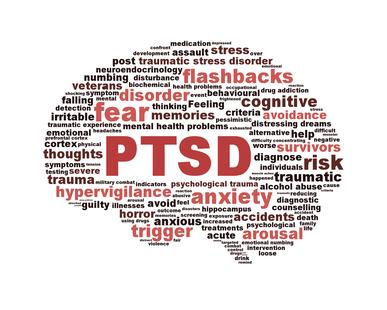New drug plus therapy helps PTSD
By William Smith
Post-traumatic stress disorder (PTSD) is all too common among service personnel and those who have experienced extreme life  stresses. You can learn more about PTSD here. New research has been done into this disorder in the form of a pilot study which holds hope for PTSD sufferers.
stresses. You can learn more about PTSD here. New research has been done into this disorder in the form of a pilot study which holds hope for PTSD sufferers.
The current most common therapy for PTSD is behavioural therapy during which a patient confronts their fears by using exposure therapy in a safe environment. This type of therapy has been effective for many patients but all too often sufferers discontinue this treatment and some still have symptoms of PTSD after they have finished the treatment.
Researchers in the pilot study used a drug treatment which had previously been tested on animals and has also been used for other anxiety disorders. The drug, D-cycloserine (DCS), promotes neuroplasticity rather than directly treating the symptoms of PTSD. This means that it makes the brain circuits more able to remodel themselves.
Exposure therapy was used to treat the participants in this study during ten weekly therapy sessions. The participants were given doses of either DCS or a placebo before each of the sessions. They did not know which of the drugs they were receiving. PTSD symptoms were measured before and after treatment.
All of the participants found a reduction of in their symptoms after the exposure therapy. Although this benefit was experienced by both the DCS and the placebo group, the DCS group was found to have enhanced effects from exposure therapy, particularly in the group of participants who suffered from more severe PTSD symptoms prior to treatment. Patients with severe PTSD also needed longer durations of therapy.
First author, Rianne de Kleine, a researcher from the Centre for Anxiety Disorders in the Netherlands said ‘Our study showed that some PTSD patients respond well and fast to exposure and for them, there seems no need to augment the therapy. In contrast, those patients with severe PTSD symptoms and who fail to respond to exposure sessions may benefit from augmentation with DCS. It seems that DCS is beneficial for exactly those patients we aimed for – the more severe patients who do not respond to first-line treatment.’
Although this work appears to be promising, the researchers say that additional work is necessary to explore whether the combination of behavioural therapy and DCS can become an effective treatment for the symptoms of PTSD.





